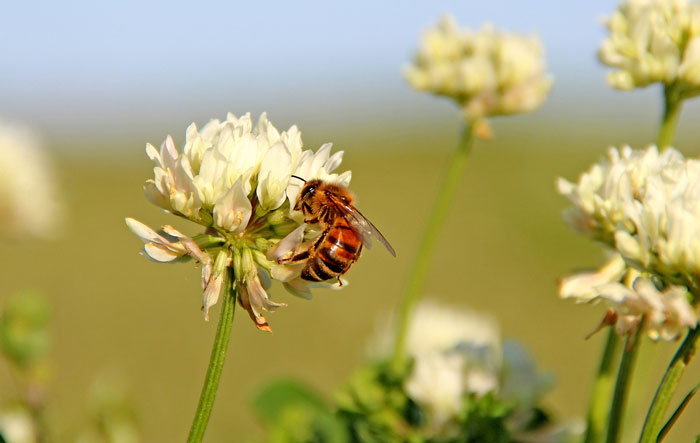
Years of research and millions of dollars have been spent in an attempt to discover the cause and remedy for an unsettling phenomenon known as honeybee colony collapse disorder, a condition that researchers now believe is the result of at least 60 environmental factors that are threatening honeybee populations worldwide.
In the United States alone, commercial honeybees have teetered on the brink of destruction for years, an estimated one-third of all bee colonies dying each year since the middle of the last decade. In all, these commercial bees are responsible for pollinating over $15 billion worth of crops in the U.S. annually.
Scientists have argued for years as new research continues to point the finger at the causes involved in colony collapse disorder. After 30-plus years of research, most agree the primary contributing factors include pesticides, disease, loss of habitat, malnutrition and even climate change. But the prevailing theory is that the single greatest culprit is and has been for decades the introduction of the varroa mite from Asia, a virus-carrying parasite that has the potential of wiping out bee colonies worldwide.
For the latest on southwest agriculture, please check out Southwest Farm Press Daily and receive the latest news right to your inbox.
First detected in the U.S. in the mid-1980s, the parasites have spread from the east coast to the west coast, rapidly infiltrating Western honeybee colonies with devastating results.
In spite of all the research and funding to develop a strategy manage the mites, researchers have come to the conclusion they are fighting an uphill battle. Chemical defense has failed because the mites build rapid resistance faster than researchers can change the chemicals they use to fight them, and if left untreated, varroa mites can destroy an entire colony of western honeybees in less than two years.
New hope
"There may be new hope on the horizon though," says Washington State University's Steve Sheppard.
Sheppard, head of the University's Department of Entomology, has been one of the leading researchers of colony collapse disorder for decades. He became interested in and encouraged about a new discovery after being contacted by Washington mushroom expert Paul Stamets who shared information he had gathered after observing honeybees and their interactions with certain varieties of mushrooms native to the region.
Stamets is not new to suggesting many benefits from mushrooms or mushrooms products to fight disease. According to Crosscut, a not-for-profit independent digital news organization in Seattle, through research supported by the National Institutes of Health and the Department of Defense, Stamets showed that certain species in a class of mushrooms called polypores contained substances that were effective against human pathogens such as pox viruses, flu viruses and herpes.
Subsequent research into the benefits of the same mushroom compounds in certain polypores associated with trees and rotting logs helped bees break down pesticides, herbicides, fungicides and other toxins, and bolster the bees’ immune systems.
Sharing his research with Sheppard, fresh ideas began streaming in about how strengthening the honeybee immune system could help the colony ward off many of the diseases associated with and spread by the varroa mite. Joining forces, the two researchers believe their work could lead to less toxic and more effective ways to control diseases and pests associated with colony collapse.
Stamets, who owns a medicinal mushroom company near Olympia, reports the idea first occurred to him after watching honeybees sipping on sugar-rich fungal roots. He concluded that rare fungi found in old growth forests of the Northeast can help to fight viruses and other diseases like bird flu, it might offer similar benefits to honeybees and their fight against colony collapse.
Sheppard says while they have not finished their research, early tests are promising. He hopes a better system of defense against colony collapse will result.
About the Author(s)
You May Also Like




